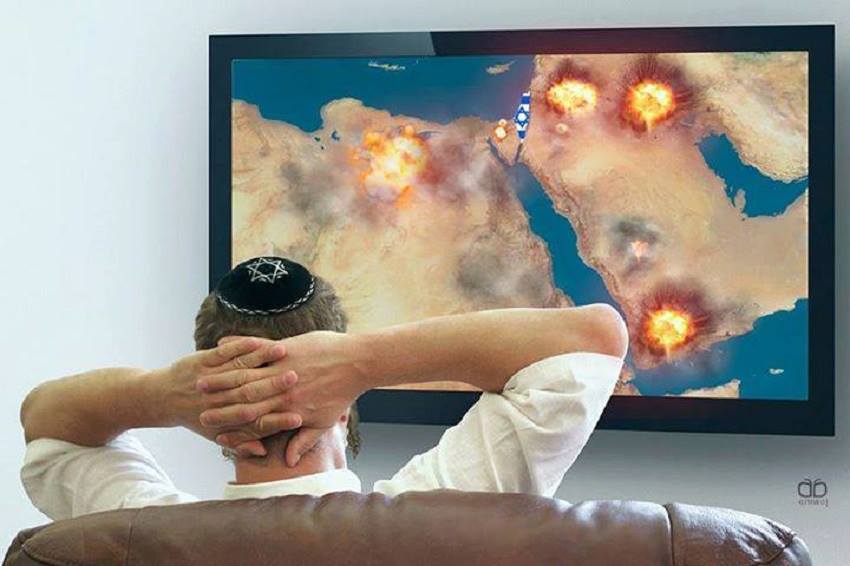In northern Gaza, Palestinians dodge Israeli bombing to fill buckets of contaminated water in order to just survive
When Ali Salama hears of a functional water station in Gaza City, in the northern Strip, he rushes to make his way there and often brings his children along to help.
The Palestinian father of nine drops the buckets of water home and heads back out to collect more, with little rest in between.
The exhausting process is done two or three times until they have enough to last them for a day, which he estimates is around 500 litres.
Due to a lack of options, people have been making the journey to collect water even under the constant threat of being killed by Israeli bombing.
‘Many times people have been bombed while they were in line to fill water or while filling water in barrels on the roof,’ Salama, 55, told Middle East Eye. ‘But we have no other choice.’
Since nearly all of Gaza’s water wells and desalination plants have been bombed since the start of the war on 7 October, Palestinians have no option but to resort to drinking contaminated water.
The Israeli military has cut off northern Gaza from the rest of the coastal enclave and repeatedly targeted aid trucks, leaving survivors on the brink of famine.
Israeli air strikes have already killed two of Salama’s sons and seriously wounded two others, who used to help him collect water.
‘I am not a young man,’ he said. ‘My back and shoulders hurt all the time from carrying gallons of water for a long distance and climbing the stairs with them.’
Salama’s experience is one of many similar stories in the north of Gaza.
Illness from contaminated water
Saadi Muqbil and his family have been displaced nine times since October and are now staying with relatives.
‘My son has been sick for almost the entire period of the war,’ Muqbil told MEE.
‘He has intestinal problems and diarrhoea,’ he added, saying that the lack of clean water and sanitation is making a lot of people unwell.
Despite needing water to perform daily essential tasks, such as cooking or bathing his son, he is forced to forego such tasks in order to save water.
‘The water left in wells is undrinkable, it is a serious health hazard. Every day I walk no less than one kilometre and stand in a long line for over two hours so I can get water for my family,’ he said.
Muqbil takes the buckets of water and empties them in the bathtub or saucepans as soon as he gets home, in case he can’t find water the following day.
The lack of clean water has taken a mental toll on him and his family, especially as his pregnant wife, who is due to give birth soon, has had little privacy while displaced and living with relatives.
‘Water is essential for everyone but things are even more complicated for women… my wife has cried many times because she needed to bathe but there hasn’t been a single drop of water available,’ he said.
At times, they have had to risk leaving their shelter amidst heavy Israeli bombing to bathe at a relative’s home.
‘We decided to take the risk because not bathing means getting sick and risking her life and the life of our unborn baby,’ he added.
Any clean water that is available to people has skyrocketed in price.
Before the start of the war, a litre and a half of mineral water cost two shekels ($0.54), but now, it costs 100 shekels ($2.71).
According to Muqbil, even for those who can pay the exorbitant prices for clean water, it is still hard to come by.
Rationing water
The journey to get water is becoming more and more dangerous as the days go on.
Nesma Hassan, a 24-year-old mother, has been struggling to find water for her family since her husband was killed while he was on the way to get water.
Her husband was on al-Shuhadaa Street, a route that he had been taking every day when he was killed by Israeli forces.
Now, the burden of fetching water for herself, daughter, mother and brother lies with her.
Her brother was gravely wounded in an Israeli missile while he was on the way to get flour.
‘We are some of the lucky ones… water is available to us three days a week,’ she said.
Hassan goes to a water station at 8 am to find a huge number of people already there before her.
‘I stay in the queue for at least two hours, and come out carrying two buckets of water. Sometimes I have to do it on my own, sometimes my neighbours help me,’ she said.
Like many other families in a similar situation, Hassan’s family is forced to calculate every drop of water they use, to conserve as much as possible.
‘The water we use to wash dishes and clothes, I save for the toilet… we can be patient with the lack of food, but we can’t survive with a lack of water,’ she says.
‘I love Gaza, but the life we live now cannot be tolerated anymore,’ adding that she is thinking of migrating to another country if a ceasefire is called.
